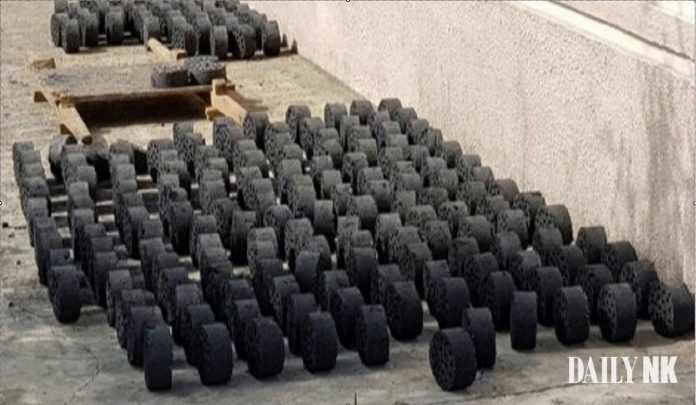
As North Koreans begin to prepare for the winter, the price of coal briquettes — the primary source of heating in the country — has dropped significantly compared to the same period last year.
According to Daily NK’s regular survey of market prices in North Korea, a briquette in Pyongyang and Sinuiju was KPW 300 and KPW 250, respectively, as of Oct. 15. These prices represented a respective 40% and 37.5% drop from the same time last year.
The drastic drop in the price of coal appears to have dragged down the price of the briquettes.
A source in the country told Daily NK that coal now costs between RMB 180 and RMB 230 (between USD 24 to 31) per ton in North Korea. These prices were far lower than the winter preparation period last year when coal cost between RMB 270 and RMB 320 (between USD 36 to 43).
Coal mining that has continued regardless of demand appears to have caused the price drop.
“Mining companies produce coal regardless of whether the price is high or low because all they need to do is fulfill their yearly production goals,” the source said.
“North Koreans begin preparing for winter in October and know that obtaining winter kindling is the most important thing behind getting cabbage and radish for making kimchi. Nothing in the world is free, and you must pay for everything yourself, so low coal prices are good. Nobody says it’s a bad thing.”
North Koreans usually buy coal and fashion it into briquettes for winter heating. They typically need between 1.5 and 2 tons of coal to stay warm in winter.
If the price of coal falls, this means a reduced financial burden on consumers; however, right now, North Koreans have little money to spend.
Even with the sharp drop in coal prices this year, North Koreans must spend around KPW 340,000 and KPW 580,000 to buy 1.5 to 2 tons of coal for winter. For that money, one could buy between 68 to 116 kilograms of rice, which now costs KPW 5,000 a kilogram in North Korean markets.
“The problem now is not a lack of coal, but the lack of money,” the source said. “As times get harder, even buying coal to make briquettes is tough.”
What’s more, coal sellers make money by acquiring cheap coal from mining enterprises to sell to people at higher prices, so the general public feels little tangible impact from the fall in coal prices, he added.
Translated by David Black. Edited by Robert Lauler.
Daily NK works with a network of sources who live inside North Korea, China and elsewhere. Their identities remain anonymous due to security concerns. More information about Daily NK’s reporting partner network and information gathering activities can be found on our FAQ page here.